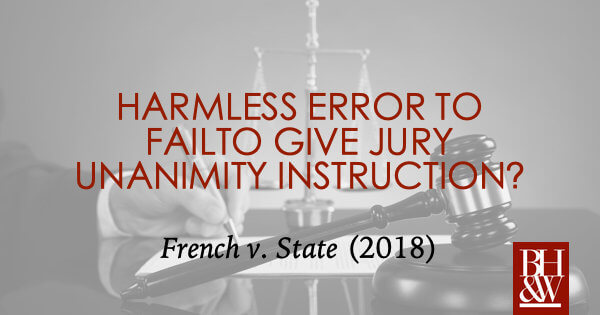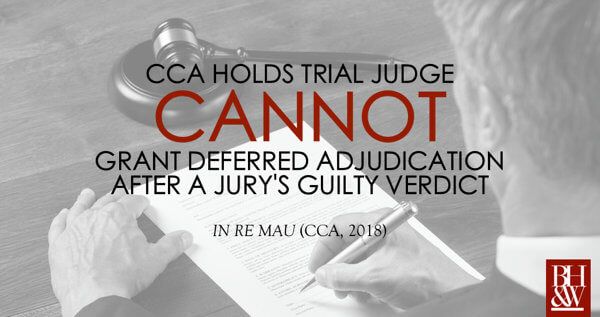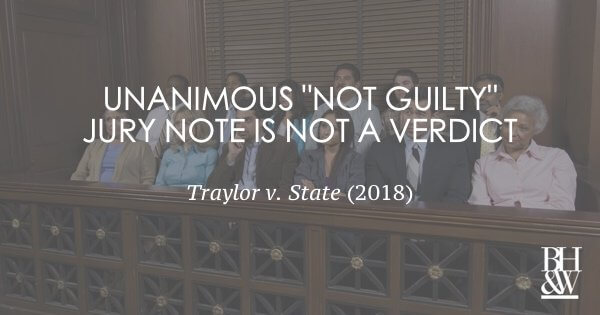The Extent of a Defendant’s Right Not to Testify?
 If a criminal defendant takes the stand during trial on the merits and denies culpability, but then, after being convicted, chooses not to testify during the punishment phase of the trial, may the prosecutor comment during closing that the defendant has “not taken responsibility for the crime?”
If a criminal defendant takes the stand during trial on the merits and denies culpability, but then, after being convicted, chooses not to testify during the punishment phase of the trial, may the prosecutor comment during closing that the defendant has “not taken responsibility for the crime?”
The 1st District Court of Appeals (Houston) says NO. But what about the Texas Court of Criminal Appeals?
In Randolph v. State, No. PD-0404-10 (Tex. Crim. App. 2011), appellant testified during guilt/innocence he was never at the scene of the crime and offered the jury an alibi. After the jury convicted him, he did not take the stand during the punishment phase of the trial. The prosecutor argued during close (in the punishment phase):
You heard from him, you heard his version and you dismissed it by finding him guilty. He has not taken responsibility for this crime.
On appeal, appellant relied upon Swallow v. State, 829 S.W.2d 223 (Tex. Crim. App. 1992) to argue that the prosecutor improperly commented on his failure to testify during the punishment phase of trial. The 1st COA agreed and held the prosecution violated the precedent set forth in Swallow. The CCA didn’t buy it, however, holding:
[A] punishment-stage remark on the defendant’s failure to accept responsibility may be fair game if the defendant, in his guilt-stage testimony, denied responsibility for his actions or for the crime.
The 1st COA held this closing argument remark was the same as the remark given by the state in Swallow, but the CCA distinguishes:
But in this case the prosecutor said nothing about remorse or lack of remorse. She spoke only of “responsibility of the crime” – responsibility that appellant explicitly denied during his testimony. This Court, in Swallow, inadvertently combined the apples of “remorse” (which is generally expressed only after accepting responsibility) with the oranges of “responsibility.”
The CCA further explained:
The prosecutor may comment on any testimony given by the defendant in the guilt stage, and, if the defendant expressly or impliedly denies criminal responsibility during that testimony, the prosecutor may comment on that denial.
Dissenting Judge Meyers asserts:
By referring to the fact that Appellant did not take responsibility for the crime, the state pointed out that the defendant did not testify during punishment phase of his trial. The majority complicates the matter by analyzing the definitions of the words used by the prosecutor, rather than considering their obvious meaning – thus creating a horrible Hobson’s choice for the defendant, an indiscernible dilemma for the trial judge, and an appellate record that will be difficult to decipher.










